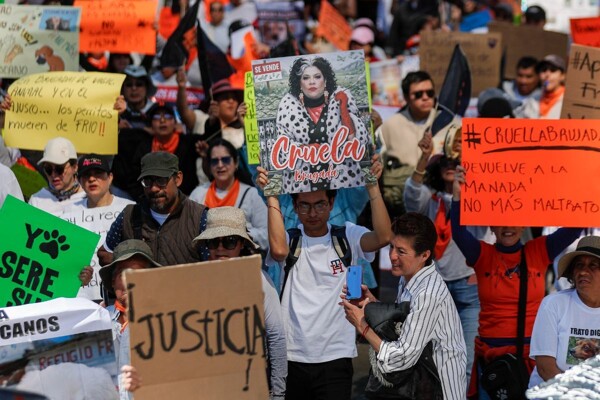In Mexico, a historic discussion took place regarding the legalization of euthanasia. Senators, federal deputies, activists, and bioethics specialists convened to debate the "Ley Trasciende" initiative. This proposal aims to reform the General Health Law to legalize and decriminalize euthanasia, guaranteeing the right to die without pain or suffering. The initiative was championed by activist and chronic patient Samara Martínez, who suffers from systemic lupus erythematosus and chronic renal failure. Her personal experience has inspired a social movement advocating for the right to a dignified death. Martínez emphasized that the proposal symbolizes the progress of a society that has learned to accompany individuals with respect, empathy, and love, even at the moment of farewell. On October 29, 2025, the initiative was formally presented in the Chamber of Deputies. It is supported by the parliamentary groups of the Citizen Movement, Morena, and the Labor Party. Deputy Laura Ballesteros announced the project, highlighting its backing from civil society and a significant portion of Congress. The senator clarified that euthanasia is not a promotion of death, but a medical alternative that, under rigorous ethical and hospital criteria, allows for the evaluation of each case based on the patient's well-being and autonomy. The President of the Governance Commission, Lilia Margarita Valdez Martínez, stated that Mexico has overcome the taboos and prejudices of the past, noting that the country is entering an era of greater fraternity and social awareness. Senator Luis Donaldo Colosio Riojas, from the Citizen Movement, highlighted that the initiative not only updates Mexico's legal framework but also promotes a national humanization process, recognizing human suffering and fostering a legislative debate based on evidence, respect, and compassion. The President of the Human Rights Commission, Reyna Celeste Ascencio Ortega, called for measured and responsible legislation, emphasizing that the discussion on euthanasia represents a collision of human rights: the right to life and the right to die with dignity. Specialists such as Dr. Víctor Manuel Enríquez, a psychiatrist from UNAM, agreed that responsible euthanasia legislation must be accompanied by medical protocols, ethics committees, and a regulatory framework that safeguards the rights of both patients and healthcare personnel. Samara Martínez, promoter of the "Ley Trasciende reiterated that her struggle is not to promote death but to humanize it, ensuring that no Mexican should face the end of their life in pain or fear. She noted that the initiative was drafted by herself, an activist and a patient with a terminal prognosis, and is supported by over 123,000 people demanding humanistic legislation that respects personal autonomy. Senator Claudia Edith Anaya Mota emphasized that the challenge is to create a solid legal framework based on scientific and bioethical arguments that provides certainty for both patients and the medical staff. The project proposes to guarantee the right to decide the end of life with respect and compassion. Deputy Laura Irais Ballesteros Mancilla stated that while the right to a dignified death is already recognized in Mexico City, the discussion must be extended to the national level. Accompanied by the signatures of over 128,000 people, Martínez formally submitted the initiative to the Senate of the Republic. It proposes amending Article 166 of the General Health Law to allow individuals over 18 with terminal or chronic-degenerative diseases, through informed consent, to access medically assisted death.
Mexico Debates Euthanasia Legalization
Mexico's "Ley Trasciende" bill proposes the legalization of euthanasia. The initiative, backed by thousands of citizens and lawmakers, aims to guarantee the right to a dignified death for patients with terminal illnesses.













